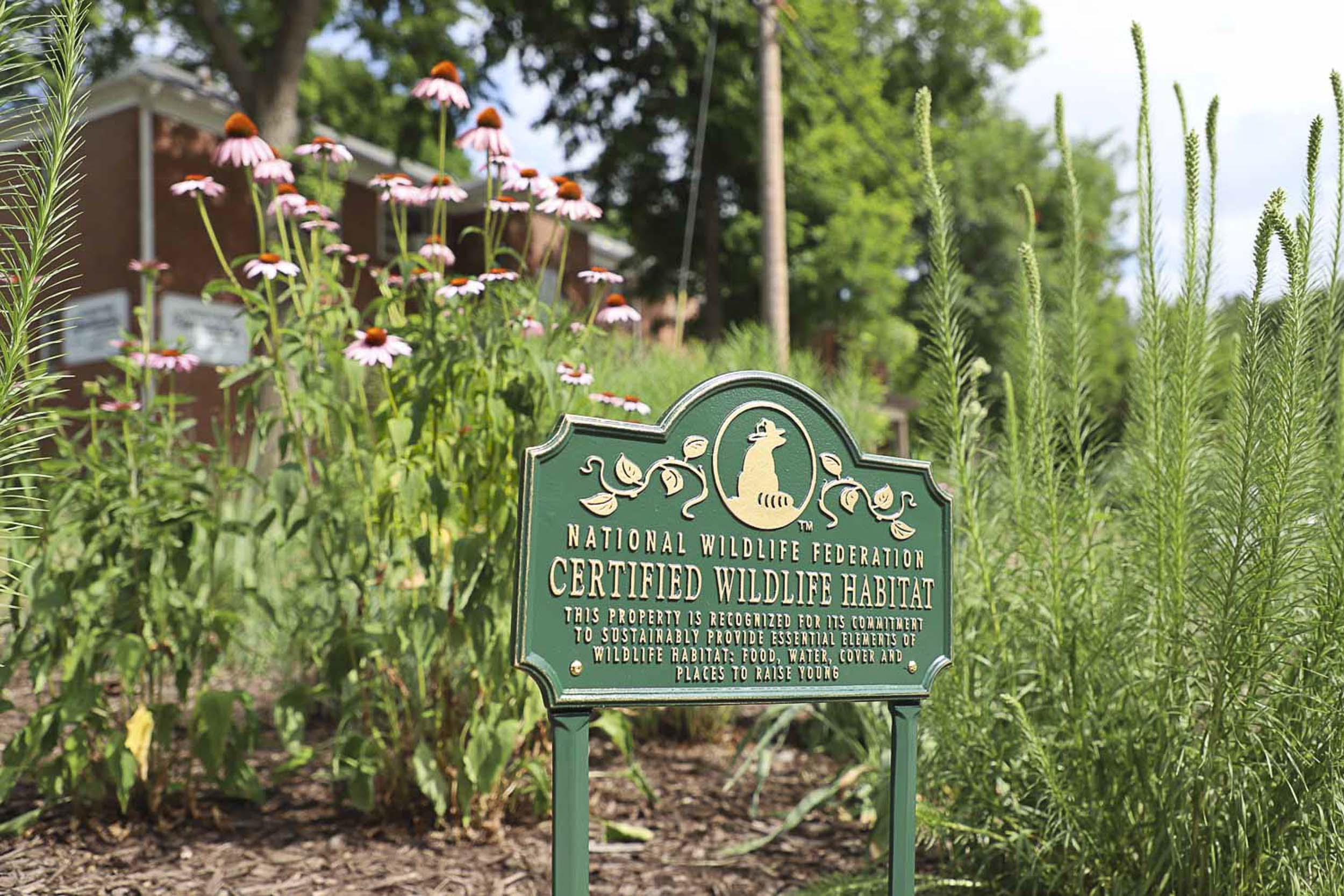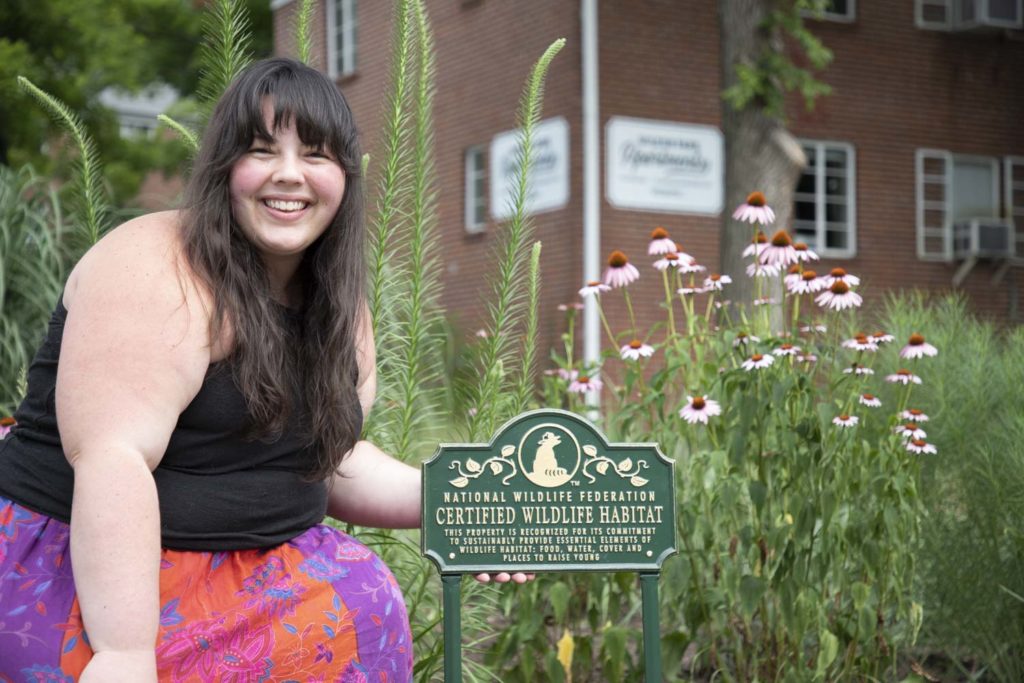
Stephanie Farmer Guides Wilson Park Apartments to Certified Wildlife Habitat Status
When Stephanie and Kyle Farmer moved back to Fayetteville last summer, they knew they wanted to live at Wilson Park Apartments. “The community garden was the selling point for us,” Stephanie says. “It honestly felt kind of magical to find this place. We love living in a community that values keeping nature around.”
Since moving back to Wilson Park Apartments, Stephanie has found herself in the position of the de facto resident gardener. She has big plans, including vegetables, herbs, flowers for bee pollination, and connecting with neighbors who are as excited about the garden as she is.
Stephanie grew up as an only child in a very rural area: “I didn’t have a cul-de-sac to play in, and I don’t even think any kids lived for several miles around.” She spent her time alone outside, and developed a deep love for nature. As an adult, she began collecting books on plants and horticulture: “We have a pretty large library in our apartment, and about half of them are books on wildlife-friendly gardening, survival in rural areas, and other aspects of horticulture.”

Stephanie Farmer installs a Certified Wildlife Habitat plaque amid native Ozark plants at Wilson Park Apartments
“For my birthday last year, I got Dirr’s Encyclopedia of Trees and Shrubs, and I was so excited!” she said.
Stephanie has put her knowledge to use in improving processes in Wilson Park Apartments’ community garden—and in getting the area certified as a wildlife habitat.
She and Kyle frequently go walking in Fayetteville’s historic district, and she noticed that many of the yards there have plaques stating they are Certified Wildlife Habitats. She began to wonder if it would be feasible to do the same at the apartments. She found a checklist for certification from the National Wildlife Federation. You have to achieve a certain number of goals from five categories: food, water, cover, places to raise young, and sustainable practices. According to Stephanie, it’s about learning to “live harmoniously with everyone who was here before us—the birds, the insects, and the trees.”
According to Stephanie, it’s about learning to “live harmoniously with everyone who was here before us—the birds, the insects, and the trees.”
Stephanie received a micro-grant from Specialized for materials including a rain barrel for the garden. Thanks to Stephanie, Wilson Park Apartments is now a National Wildlife Federation Certified Wildlife Habitat. The certification recognizes that the property provides natural sources of food, water, cover, and places to raise young and is maintained in a sustainable way that incorporates native plants, conserves water and doesn’t rely on pesticides. To contribute to certification, Stephanie added a birdbath, a pollinator tube nesting box, host plants for native butterflies, and a rain barrel to the existing landscape. She has a personal motivation for creating beautiful patches of flowers on the property:
“I know back roads around Fayetteville where I can drive at certain times of year and find a huge field filled with buttercups. I dream of planting a field like that that will come back each year, something people can come out to see and enjoy. It doesn’t have to have my name on it. A lot of our society’s problems are so big and feel so unsolvable. It feels good to be part of solving a problem in a way that can make everyone happy.”
The original version of this story by Emalie Cockrell appeared in Connection, our quarterly newsletter.

